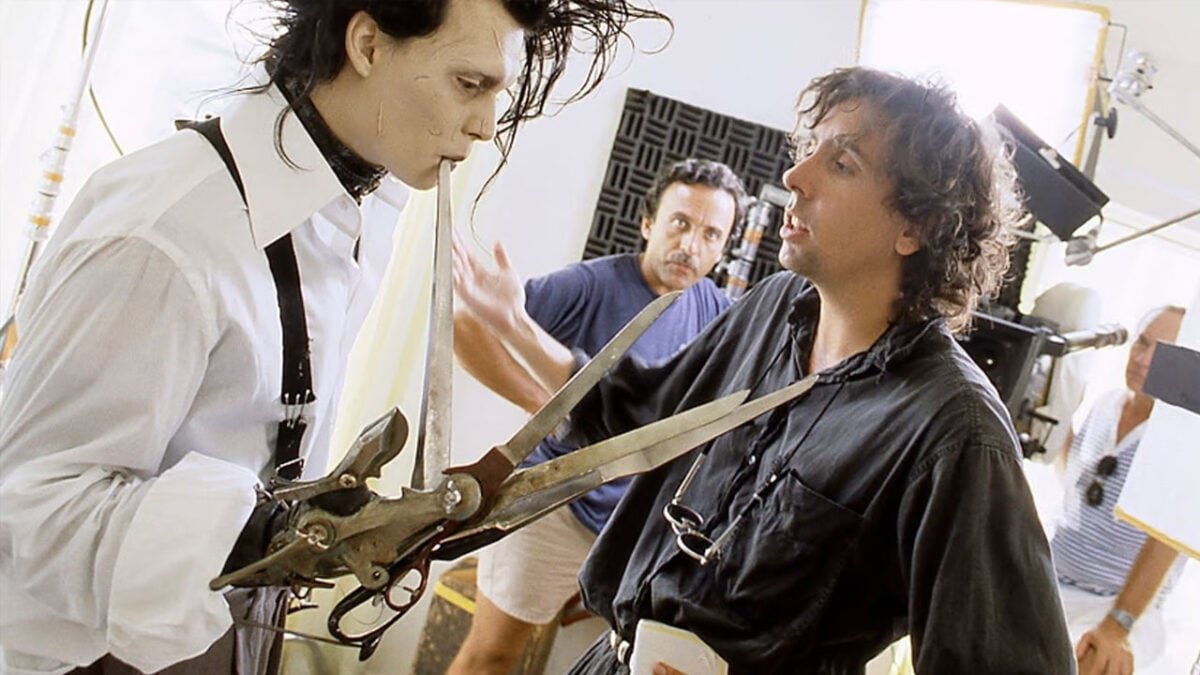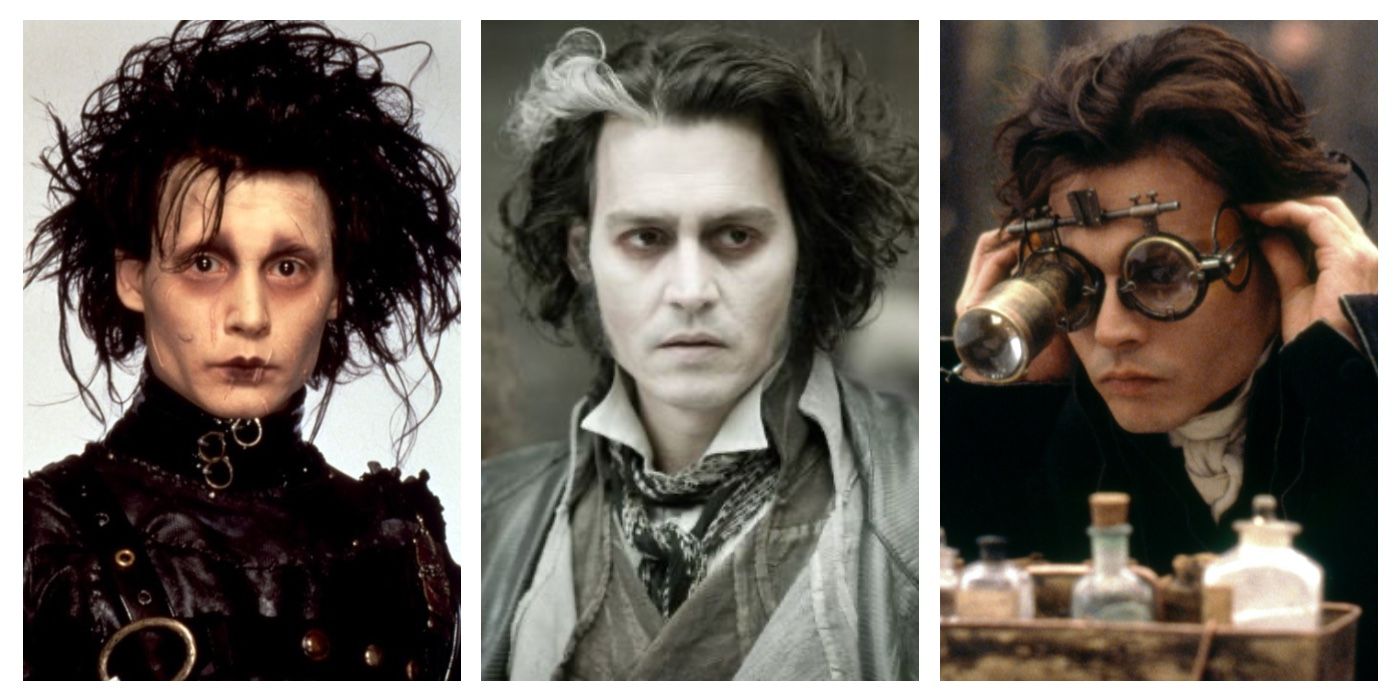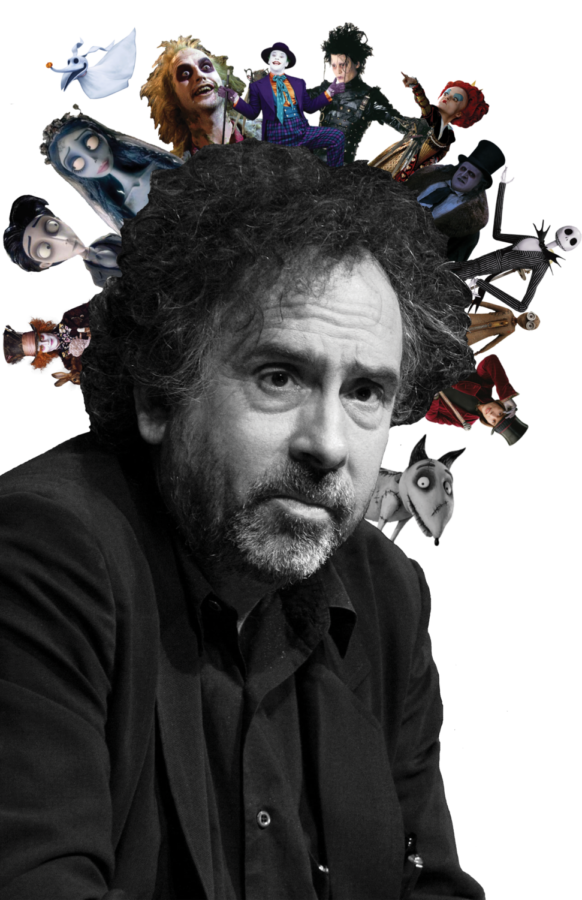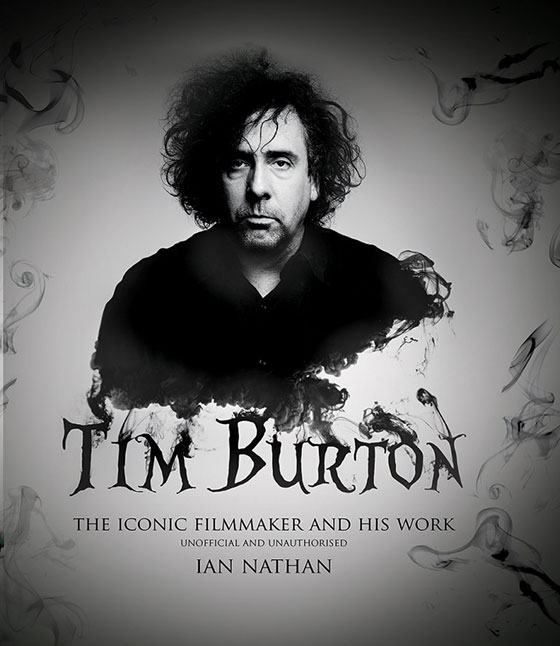
Tim Burton is a master of the macabre, a weaver of dark fantasy tales that have captivated audiences for decades. With a filmography that spans over 40 years, Burton has established himself as a visionary director, producer, and screenwriter. His unique blend of Gothic aesthetics, quirky humor, and poignant storytelling has made him a household name, synonymous with the weird and wonderful. In this article, we'll delve into the iconic filmography of Tim Burton, exploring his most notable works and the themes that have come to define his oeuvre.
The Early Years: Burton's Rise to Prominence

Born on August 25, 1958, in Burbank, California, Burton grew up in a suburban environment that would later influence his fascination with the bizarre and unknown. After studying character animation at the California Institute of the Arts, Burton began his career as an animator at Disney, working on films such as "The Fox and the Hound" (1981). However, it was his short film "Vincent" (1982), a stop-motion animated tribute to Vincent Price, that caught the attention of Paul Reubens, who would later collaborate with Burton on "Pee-wee's Big Adventure" (1985).
Breaking into Mainstream: Pee-wee's Big Adventure and Beetlejuice

Burton's feature film debut, "Pee-wee's Big Adventure," was a critical and commercial success, grossing over $40 million at the box office. The film's offbeat humor and visual style, which blended elements of fantasy and adventure, established Burton as a rising talent in Hollywood. Two years later, Burton released "Beetlejuice" (1988), a supernatural comedy that cemented his reputation as a master of dark fantasy. Starring Michael Keaton as the titular bio-exorcist, "Beetlejuice" became a cult classic, showcasing Burton's ability to balance humor and horror.
Establishing a Signature Style: Batman and Edward Scissorhands

The 1989 film "Batman" marked a significant milestone in Burton's career, as he brought the Caped Crusader to the big screen in a way that was both faithful to the source material and distinctly his own. The film's success can be attributed to Burton's dark and atmospheric approach, which redefined the character for a new generation. The following year, Burton released "Edward Scissorhands" (1990), a poignant and fantastical tale about a gentle, unfinished creation (played by Johnny Depp) who is taken in by a suburban family. This film showcased Burton's ability to craft a narrative that was both whimsical and emotionally resonant.
Exploring the Weird and Wonderful: The Nightmare Before Christmas and Ed Wood

In 1993, Burton co-directed "The Nightmare Before Christmas," a stop-motion animated classic that has become a staple of both Halloween and Christmas seasons. The film's eerie yet enchanting atmosphere, coupled with its memorable characters and songs, solidified Burton's reputation as a master of the macabre. The following year, Burton released "Ed Wood" (1994), a biographical comedy-drama that paid tribute to the life and career of low-budget filmmaker Ed Wood. The film, starring Johnny Depp as the titular character, showcased Burton's ability to balance humor and pathos.
Continuing the Legacy: Sleepy Hollow and Planet of the Apes

In 1999, Burton released "Sleepy Hollow," a horror film based on Washington Irving's classic tale. The film, starring Johnny Depp as Ichabod Crane, showcased Burton's ability to craft a narrative that was both eerie and suspenseful. Two years later, Burton released "Planet of the Apes" (2001), a science fiction remake that explored themes of identity and humanity. Although the film received mixed reviews, it demonstrated Burton's willingness to take risks and experiment with different genres.
Recent Works: Big Fish and Sweeney Todd

In 2003, Burton released "Big Fish," a fantasy drama that explored the complex relationship between a son and his dying father. The film, starring Ewan McGregor and Albert Finney, showcased Burton's ability to craft a narrative that was both whimsical and emotionally resonant. Five years later, Burton released "Sweeney Todd: The Demon Barber of Fleet Street" (2007), a musical thriller that starred Johnny Depp as the titular character. The film, which won several awards, including the Academy Award for Best Art Direction, demonstrated Burton's ability to balance horror and humor.
A Reflection on Burton's Legacy

Tim Burton's filmography is a testament to his boundless creativity and innovative spirit. From his early days as an animator to his current status as a household name, Burton has consistently pushed the boundaries of storytelling, experimenting with different genres and themes. His ability to balance humor and horror, whimsy and pathos, has made him a beloved figure in popular culture. As we reflect on Burton's legacy, it's clear that his impact on the film industry will be felt for generations to come.
Final Thoughts
Tim Burton's iconic filmography is a reflection of his unique perspective on the world. His ability to craft narratives that are both dark and whimsical, humorous and poignant, has made him a master of his craft. As we look back on his impressive body of work, it's clear that Burton's legacy will continue to inspire and captivate audiences for years to come. So, if you're a fan of the weird and wonderful, the bizarre and fantastical, then Tim Burton's filmography is a must-see.
What is Tim Burton's most iconic film?
+While opinions may vary, "Beetlejuice" (1988) is often considered one of Tim Burton's most iconic films. Its unique blend of humor and horror, coupled with its memorable characters and quotes, has made it a cult classic.
What is Tim Burton's favorite film of his own?
+According to various interviews, Tim Burton's favorite film of his own is "Edward Scissorhands" (1990). He has stated that this film is the most personal and emotional of all his works.
What is the recurring theme in Tim Burton's films?
+One of the recurring themes in Tim Burton's films is the struggle between conformity and individuality. Many of his characters, such as Edward Scissorhands and the protagonist of "Big Fish," are outsiders who refuse to conform to societal norms.
Gallery of Tim Burtons Iconic Filmography: A Dark Fantasy Director







